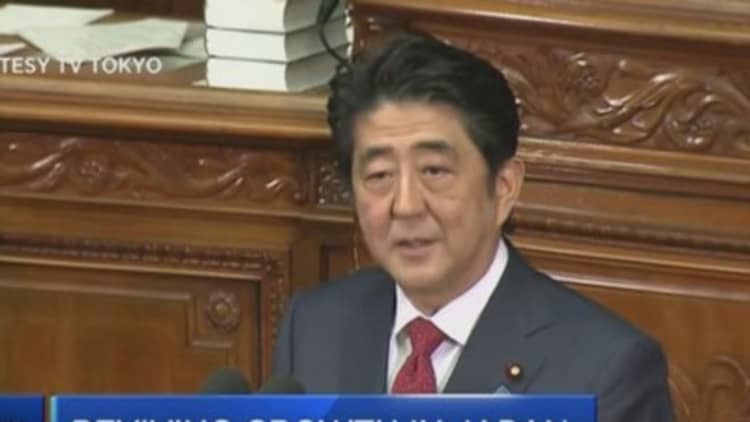The Bank of Japan is set to maintain its massive stimulus program on Tuesday and signal its conviction that a steady economic recovery will help achieve its ambitious price target without immediate, additional monetary easing.
A slump in oil prices has slowed annual core consumer inflation to 0.2 percent in January, well below the BOJ's 2 percent target, keeping alive expectations the central bank will top up its already aggressive asset-buying program this year.
But BOJ policymakers have sent a concerted signal to investors that while they expect inflation to grind to a halt in coming months, they see no need to respond unless the price weakness hits inflation expectations.

Governor Haruhiko Kuroda is seen reinforcing this stance at his post-meeting briefing, while reminding markets that he is ready to act on any sign of change in a broad uptrend in prices.
"The BOJ won't respond to oil price moves themselves but will closely monitor how they affect inflation expectations," Kuroda told a news conference on Feb. 27.
Read MoreAnalysts still see more BOJ stimulus coming
At Tuesday's meeting, the BOJ is widely expected to maintain its stimulus program that pledges to print money at an annual pace of 80 trillion yen ($659 billion).
It is also seen maintaining its view that continued improvements in the economy will nudge companies into raising wages and capital expenditure, helping Japan hit its 2 percent inflation target in the year beginning in April.
Japan's economy is emerging from last year's recession thanks to a much-awaited rebound in exports and factory output.
But private consumption remains soft as households continue to curb spending after being hit by last year's tax hike and the rising cost of living from a weak yen.
Some BOJ board members have pointed to the weakness in consumption as a concern, although Kuroda has been unwavering in his optimism on the outlook for Japan's economy.
The BOJ has stood pat on policy since expanding its massive stimulus program in October last year to prevent slumping oil prices, and a subsequent slowdown in inflation, from delaying a sustained end to deflation.

